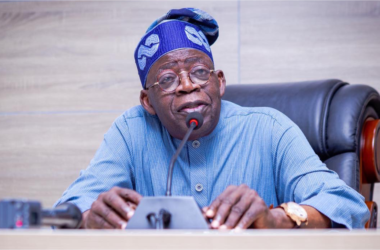…In a noisy world, he lives by faith, serves with love, and speaks truth with unshakable gentleness.
In an age where noise often passes for relevance and posturing is mistaken for impact, Folu Olamiti remains a startling anomaly—a quiet general whose war has always been for truth, decency, and the unseen souls of men.
To speak of Olamiti is to speak, not of positions or promotions, but of principles—unbending ones. It is to witness a life curated not for applause but for alignment with God’s will, and one that has never shied from the burden of truth, even when truth came at a cost.
“There is no way you will talk about him without reference to his deep love for God, his immeasurable humility, simplicity and meekness,” said Mrs Biodun Ladokun, former Woman Editor of the Tribune titles. That is not sentiment—it is the blueprint of Olamiti’s journey.
He has faced detention for reporting truth. He has borne professional pressures for choosing integrity. He has built others without asking for loyalty. And he has never weaponised his pain.
A Servant First, A Journalist Next
From his earliest days hawking chinchin and akara across towns in Western Nigeria as a catechist’s son, Olamiti absorbed one priceless truth: service is sacred. That truth became the fulcrum of his journalism. Not headlines. Not ego. But impact.
At The Nigerian Tribune, he didn’t merely report news. He carried Nigeria’s conscience on his back, speaking with a voice dipped in conviction but filtered through compassion. He rose to become Executive Editor (Publications), yet kept his door—and heart—open to the least of colleagues.
When security agents harassed him, it wasn’t for printing lies. It was for publishing truth that made power uncomfortable. Yet he bore no bitterness. “He was aggressive in mind but gentle in manner,” said Femi Idowu of NTA. That paradox defines Olamiti.
The Pastor Who Never Took the Pulpit
Though he never wore a clerical collar, Olamiti has pastored thousands—through mentorship, correction, and presence. He is a servant of the Word, not through exegesis, but through embodiment. He carries God’s peace like a second skin. People do not leave his presence the same.
He has built ministries not with bricks, but with hearts healed, minds sharpened, and dignity restored. His faith is neither decorative nor declarative. It is demonstrated in the unbroken rhythm of his integrity.
When the ICPC needed a voice to represent a quiet revolution against corruption, they chose him. Not because of fame, but because of credibility. For over a decade, he became the face of ethical persuasion in governance, preaching accountability in schools, markets, mosques, and ministries.
To him, corruption was not just about politicians. It was about ordinary citizens compromising extraordinary values. He built networks—Volunteer Corps, Integrity Clubs, Religious Forums—not just for public relations but for moral reformation. His belief was simple: If the soul of a nation is corrupt, its systems will follow.
The Sage and the Servant
His years covering Chief Obafemi Awolowo were not just about political journalism—they were spiritual training. Awo was more than a political figure to Olamiti. He was a mystic, a moral compass, a philosopher king. In observing Awo, he became more attuned to the weight of legacy and the humility of service.
Years after Awo’s passing, Olamiti returned to his study. Alone, silent, searching. “The silence in the room overwhelmed me,” he wrote. It was not just nostalgia—it was reverence for purpose.
He saw the books. The order. The symmetry. The mystery. And he understood: real greatness is structured, spiritual, and sacrificial.
A Wounded Healer
Olamiti has known disappointment. He missed a Canadian university offer because his father—a faithful catechist—could not afford the fare. But he turned that pain into passion, never abandoning humility for ambition. He never speaks of it with regret—only as a chapter in God’s script for his life.
He is now a builder of builders, a father to the fatherless, a quiet bridge between government and gospel, between press and pulpit.
In an era where public figures curate their lives for cameras and followers, Olamiti lives for a different audience—God, conscience, and history.
His book, A Peep into the Past, is not just a memoir. It is a manual on purpose-driven living. It captures the agony of journalism under oppression, the joy of mentorship, and the struggle to remain upright in a bent world.
There are men who change policies. Then there are men who change people. Folu Olamiti is the latter.
He may never trend. But he will always matter.
Not because he sought power—but because he gave love.
Not because he fought for recognition—but because he refused to be anything less than truthful, humble, and faithful.
He is a man not defined by headlines, but by heartlines—the quiet imprints he leaves on the souls he encounters.








